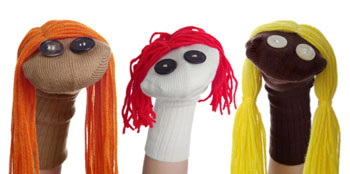Please welcome guest author Joshua Danton Boyd with a post on character development in fiction writing.
For writers, characters can be very personal creations. Despite being taken from the ether, we can become attached to them, especially if we’ve been working on their story for years. With all the time and effort put into crafting their fictional lives, it’s understandable that we become overly sympathetic to them. We practically treat them like children. This, unfortunately, can be a one-way road to bland and uninteresting character development and plot lines. Just because you’re happy with your precious hero doesn’t mean your readers will be.
Here’s why:
We want to read about characters going on journeys, be they physical or mental. This means there needs to be change in some way or another. We want to see characters that end up different from how they started. This is why the famous trope of the reluctant hero is so popular. Take Han Solo in Star Wars for example. He starts out as a man only interested in money and his own safety and then ends up risking his life for the Rebellion.
These kinds of transformations are pleasing–even the ones where a character goes the other way and becomes evil. The point is that things can’t just stay the same, and one of the best plot devices for moving a character forward and making them interesting is to treat them badly. Put them through hell.
We shouldn’t give our heroes unfair advantages so that any problems they come up against are easily overcome. Even superheroes have their supervillains to ensure they are properly challenged. Imagine how terrible Superman comics would be if his adversaries were regular humans mugging old ladies.
Make things difficult for your characters. If you don’t, your readers already know how it’ll end. The stronger you make your character, the stronger you should make their enemies. This stresses your characters, which enables readers to get a fuller understanding of their mindsets. Stress, and how someone responds to it, tells us a lot of about people. It’s when we lose our cool that we are at our most honest.
Avoid making characters that are perfect, as though they could do no wrong in the world. This is generally boring. We do not want to read about people like that because we have no way to relate to them. All of us have one flaw or another and so should your characters. Make them selfish or ignorant or weak or arrogant or whatever. There’s no depth in characters that have nothing wrong with them. Flaws also give you scope for character development.
It’s important to remember that our characters do not belong to us. Once the story is out there, they belong to your readers. They’re the ones who will become truly attached to your characters, and for that to happen characters need to resonate with readers. Few people have a perfect life, so when things get tough, they want someone they can relate to. Make it the characters in your book. Even in books set in fantastical fictional universes, characters must be realistic. Put that realism into your heroes.
 About the Author: Joshua Danton Boyd is a writer based in Brighton. He currently works full time as a copywriter and on the side is putting together a music and science site called The Scientist Conductor.
About the Author: Joshua Danton Boyd is a writer based in Brighton. He currently works full time as a copywriter and on the side is putting together a music and science site called The Scientist Conductor.





Great advice! I think we tend to baby our heroes/heroines because we want to see them win. I really prefer characters that are flawed. I especially love when villains have complications, particularly the ones that make it hard to hate them. That’s always awesome.
Jenny
I prefer flawed characters too. My favorite characters are the ones who grow over the course of the story.